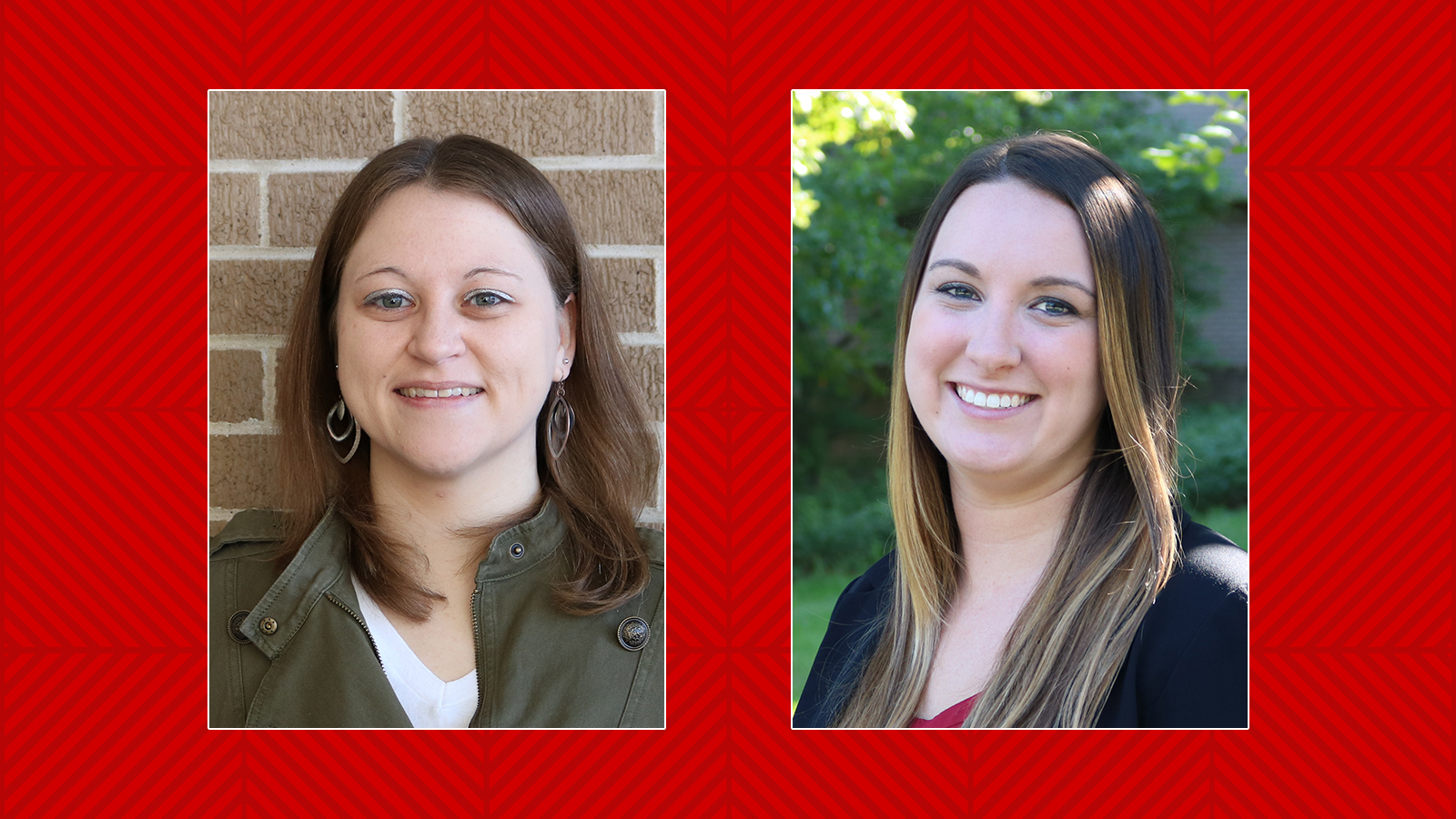
Carly Dinnes, a Ph.D. candidate in Human Sciences in the University of Nebraska-Lincoln’s Department of Special Education and Communication Disorders, and Kelly Malcolm, a third-year student in Nebraska’s Clinical Doctorate in Audiology (Au.D.) program, have been selected as recipients of the Student Research Travel Award to attend the 2018 American Speech-Language-Hearing Association (ASHA) Convention Nov. 15-17, in Boston.
Dinnes received the award by being the first author on “Writing After Traumatic Brain Injury: Impact of Injury & Recommendations for Assessment & Treatment”, the highest-rated student-authored paper in its convention topic area. Malcolm’s award was for her paper, “Prevalence of Vestibular Deficits Associated with Gentamicin Use in Nicaragua.” As award recipients, both students will receive a $500 stipend and complimentary registration to attend the convention. In addition, Malcolm was also selected for one of ASHA’s Audiology/Hearing Science Research Travel Awards, from which she will receive an additional $500 stipend to defray costs of attending the convention.
“Receiving this award will highlight writing after traumatic brain injury as a research and clinical topic that is in dire need of attention as difficulties with post-injury writing can have long-lasting negative impacts on engagement in social, academic and vocational activities,” Dinnes said. “This award underscores the importance of this research and will hopefully draw more researchers and clinicians into the process of creating effective writing assessments, interventions and supports for people with traumatic brain injury.”
For Dinnes, who expects to finish her doctorate in May 2019, improving writing after brain injury has been a main focus of her research since beginning her doctoral program in 2016. It started the day she arrived at Nebraska, when Karen Hux, her adviser and now a professor emerita in speech-language pathology, presented her with an individual who was seeking help for difficulties he was having with writing after a concussion. In setting up a study to develop interventions for him, Dinnes and Hux discovered a lack of existing research in the area of writing after a traumatic brain injury.
“We found that writing was something that had a big impact on not only being able to go back to work or school, but also on how people communicate with each other,” Dinnes said. “For some people (with brain injuries) it’s now this really daunting task, and for others it’s not quite as anxiety-inducing but it’s definitely an area that needs to be investigated further.”
Malcolm’s interest in her research topic began when she traveled to Nicaragua in the summer of 2017 for the HearU International study abroad trip. Malcolm was one of six audiology students who participated in the humanitarian audiology project in which Husker students and faculty spend two weeks providing hearing healthcare services in Nicaragua, a country of more than 6 million people with only one known audiologist.
“As the poorest country in the Western Hemisphere, Nicaragua has extremely poor healthcare conditions accompanied by a high prevalence of hearing loss,” Malcolm explained. “Our service trip solely delivered services that diagnosed and provided treatment for hearing loss, but did not diagnose or treat dizziness and imbalance. A lot of individuals we were testing for hearing loss were also experiencing dizziness and little is known on the causes or treatment options. It became my goal to design a research study that would take a step toward addressing this issue.”
With the help of her faculty mentor, professor Sherri Jones, Malcolm focused her research on the use of a strong antibiotic, Gentamicin, that is widely used in Nicaragua and its relationship to dizziness and imbalance. Unfortunately, Malcolm had to modify her original research design due to political unrest in Nicaragua that prevented her from traveling back to the country this past summer to perform dizziness tests on individuals. Instead, she is beginning data analysis using data previously collected from HearU International trips in 2016 and 2017.
“It is my hope that these findings will not only reveal the need for additional research on the causes of dizziness and balance issues in developing countries, but also to develop testing and treatment protocols for dizziness,” Malcolm said. “Having my research recognized with the ASHA Student Research Travel Award makes me hopeful that my research will be seen by many individuals in our field and really help make a difference. I hope to take what I learn from this research project to help those in Nicaragua. I also hope this research project sparks the interest of others about humanitarian audiology and increases collaboration with HearU International.”
Students who are first authors on a paper accepted for presentation at the ASHA Convention are eligible for the Student Research Travel Award. Recipients are those who receive the highest rating from the Convention Program Committee in one of the Convention topic areas. Dinnes and Malcolm are the third and fourth Huskers to receive the award since 2007, joining Jillian McCarthy (2009) and Anusha Thomas (2010).
Malcolm’s second award, the Audiology/Hearing Science Research Travel Award, is available to Au.D. and Ph.D. students, as well as postdoctoral fellows, in audiology or hearing science who have expressed an interest in pursuing a research career in communication sciences and disorders. Malcolm is the only Husker to receive the award in the past four years.